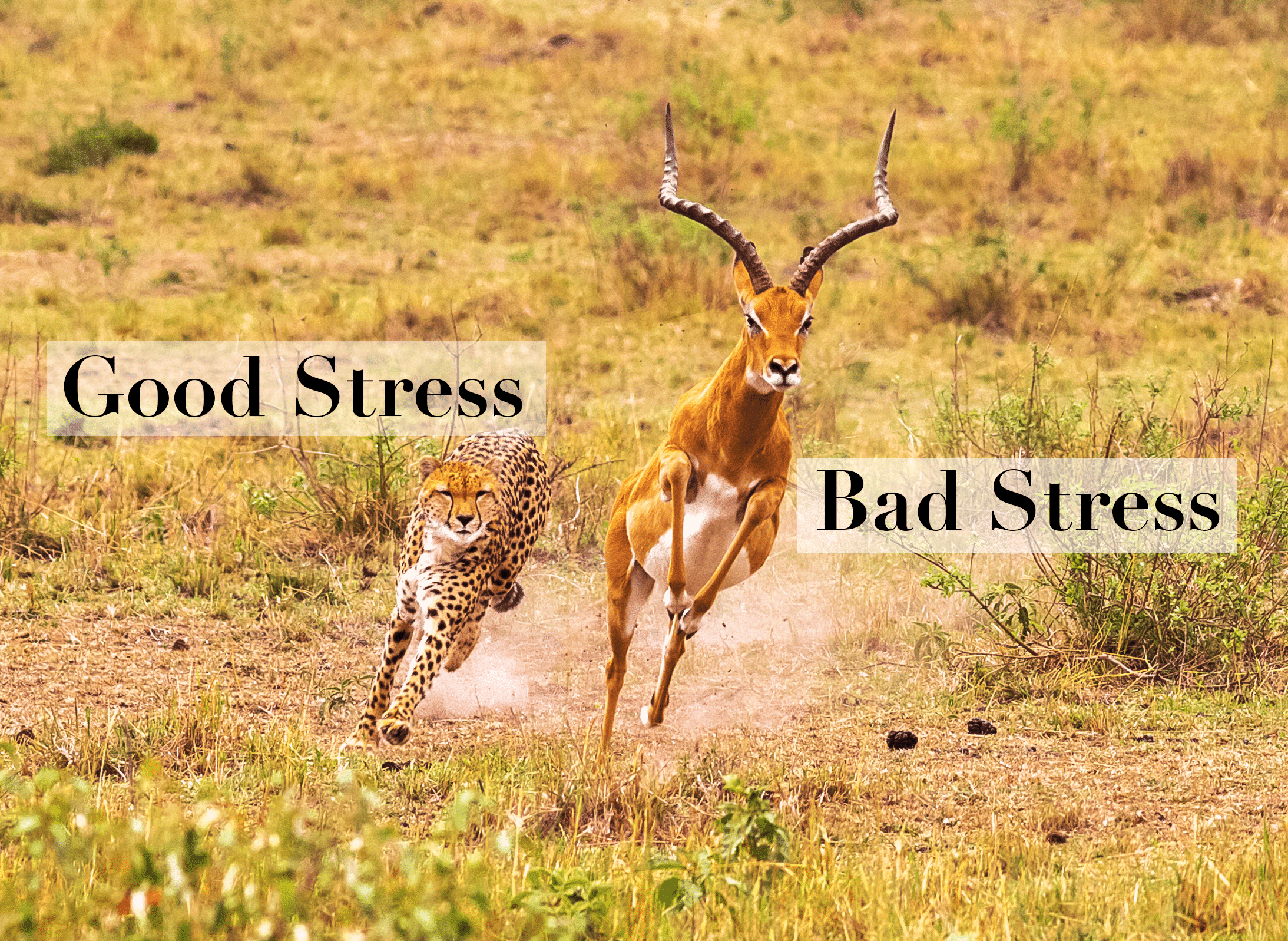Have you noticed how it seems like the world is accelerating like a merry-go-round that rotates faster and more chaotically with each passing year?
If so, you’re not alone. I’m right there with you.
If 2020 has taught us anything, it’s that self-care is no longer an option, and with the breakneck pace at which the world is moving right now, taking care of ourselves is synonymous with slowing down and allowing our nervous systems to unwind.
It’s been a year of wild, unsettling extremes—the most epic rollercoaster most of us have ever been on. With the new year approaching, many of us are praying that 2021 has a tad more chill than its unruly predecessor.
Our finances, relationships, and tolerance for uncertainty have been pushed to their absolute limits. We’re also relying on social media more than ever to connect with friends and family, and are thus subjected to even more of its incessant rapid-fire attention-deficit states of (un)awareness.
There’s never been a more ideal time to cultivate tranquility, but it’s also never been harder.
I have an extremely busy week ahead of me. My whiteboard has filled up with all manner of things to accomplish in my personal and professional lives. I have relationships to nurture, bills to pay, and clients to support, all while maintaining a rigorous regimen of self-care: home-cooked meals, exercise, and remembering to take all of my supplements.
That’s exactly why I need to slow down and take more time for meditation this week, not less. Sound counterintuitive?
The tendency when we have a million things to do is to unconsciously speed up, ignoring the warning signs from our stress hormones that we might be redlining, pushing ourselves beyond the pale of healthy functionality and into the realm of fight-or-flight overdrive where inflammation flourishes and the immune system performs less than optimally.
The more fast-paced the outside world is, the more we tend to fall into sympathy with it and move equally briskly, but this often makes everything worse.
Moving quickly is not always a bad thing, of course. If our physical and mental resources far exceed the demand of the situation, then a lot of intense, fast-paced events in rapid succession may actually benefit us.
Researchers differentiate between good and bad stress. Good stress is technically called eustress, which is essentially an intense, demanding situation that one interprets as beneficial. This is in contrast to the more negative distress, which is what most of us are referring to when we use the word ‘stress’.
Here’s another way of putting it:

These days, most of us are more likely to feel like the Impala than the Cheetah, but if only we made time to sit down and breathe for a bit, that could change. Dramatically.
“But I don’t have time to meditate! Then I’d have even more to do every day!” you might be thinking.
I get it. I often have the same thought. But the reality is that we just work better when our nervous systems are balanced, and meditation more than pays for itself in terms of efficiency. As the old cliché goes, it’s about working smarter, not harder, and meditation is extremely helpful in this capacity.
In fact, meditation has been shown experimentally to strengthen the prefrontal cortex, which is responsible for discipline, focus, and executing sound reasoning.
Meditation is borderline miraculous. It can’t do everything, and it’s not totally without side effects, but if it were a drug, it would make hundreds of billions of dollars a year and would be considered safer than 99% of other medications. Innumerable studies from all over the world have confirmed that its benefits are vast, as it can positively influence the nervous system, immune system, lymphatic system, digestive system, adrenals, cardiovascular system, and reproductive system.
Unfortunately—unlike a drug—meditation requires effort and active (although some may call it ‘passive’) participation, so it’s a bit harder to get folks on board. It can also be intimidating for a number of reasons, one of which is that we’re confronted with just how noisy our minds are, and another is that sometimes uncomfortable emotions can rise to the surface.
That’s why it’s best to start with extremely short sessions and work your way up over time.
According to research, meditation styles like Mindfulness-Based Stress Reduction are quite safe for the majority of people, although a small percentage may struggle with it, particularly those who are dealing with a lot of trauma. Those folks may want to seek other modalities like mindful action.
There are also myriad forms of meditation, which makes it difficult to generalize too much. One form may be right for one person but not for another.
Now that we have those disclaimers out of the way, we’re about to dig into the some of the science behind meditation’s effects, but first…how about a demonstration? Nearly every lecture I’ve seen on meditation included a meditation at the beginning, so I’m following suit.
I challenge you to do this easy one-minute meditation before reading the rest of this article:
If you didn’t do it, no worries. But if you did, good for you! I mean really, it’s only 60 seconds of your time. It won’t hurt, I promise. It’s not too late. You can still hit that play button and come back.
Remember: knowledge about something is not remotely the same thing as directly experiencing it. You could write an entire PhD dissertation on the work of Mozart—analyzing his genius from the perspective of music theory—while being totally deaf.
So, as we dig into the research and activate our rational minds, remember: talking about meditation is a poor substitute for actually doing it.
There is ample scientific evidence that meditation can help us dramatically in the two areas where we need it the most during the pandemic: immune function and mood. We’ll start with the one that’s on everyone’s minds the most right now.
Meditation and Immune Function
The nervous system and the immune system are deeply intertwined. Stress hormones really do affect our immunity. This idea used to be thought of as woo-woo but is now considered scientific fact due to advances in the field of psychoneuroimmunology.
Research has shown that stress can sabotage immune performance by causing an imbalance in the ratio of two important types of immune cells, called Th1 and Th2 cells. As I’ve discussed in a previous article, when Th2 cells are more prevalent than Th1 cells, it can lead to an underperforming immune system that tends to cause unproductive, runaway-type inflammation.
In a study titled ‘Psychological stress and susceptibility to the common cold’, researchers took 394 people and exposed them to a respiratory virus. The volunteers were given surveys to determine their levels of psychological stress as well as antibody tests to assess the severity of infection.
The authors of the study concluded:
“Psychological stress was associated in a dose-response manner with an increased risk of acute infectious respiratory illness, and this risk was attributable to increased rates of infection rather than to an increased frequency of symptoms after infection.”
Translation: the more stressed out people were, the sicker they got, and this wasn’t just a matter of having worse symptoms. This was actually based on directly measuring the degree of viral infection in their bodies.
It’s obvious that meditation has the ability to decrease psychological stress, so it’s not a big leap to imagine that it can reduce susceptibility to infection, but are there any studies that directly show this?
Turns out there are.
In one study, 8 weeks of meditation training significantly decreased the incidence of colds and flus. In another study, meditation was able to increase white blood cell counts in HIV patients, helping to slow the progression of AIDS.
There are also plenty of studies that show that meditation can enhance immunity, noting decreases in inflammation which would otherwise interfere with immune performance as well as increases in the antibodies that we need to fight invaders.
Our bodies react to our mental states in real-time, and so even though the effects of meditation get better over long periods, even a single brief session can have powerful effects. Amazingly, one study found that an antibody called salivary immunoglobulin A (s-IgA) increased after just 20 minutes of a mantra-based meditation.
Meditation and Mood
Depression rates in the United States have tripled since COVID hit. Although it’s not necessarily the sole cause of people’s mental suffering, the pandemic has clearly done a number on our overall mental health, exacerbating preexisting conditions and pushing many people over the edge of despair.
Depression is an extremely complex, multifactorial disease, but one of its many causes is social isolation. Interestingly, excessive social media use is associated with a significant increase in both depressive moods and loneliness.
Isn’t it ironic that the digital services that we’re using to connect to each other can actually make us feel even more isolated?
A 2018 study titled ‘No More FOMO: Limiting Social Media Decreases Loneliness and Depression’ took 143 undergraduate students and randomized them into two groups: one group limited all their social media use to 30 minutes per day, and another group continued unrestricted, going about their business as usual and indulging in infinite scroll to their heart’s content.
The group who restricted their social media use showed significant reductions in both loneliness and depression. So what would happen if a depressed person took 45 minutes of social media time per day and used it instead for meditation?
There’s ample evidence that such a move could be nothing short of life-changing.
Mindfulness-Based Cognitive Therapy (MBCT), which combines Cognitive Behavioral Therapy with meditation and body awareness, is particularly promising in the treatment of depression.
One study on MBCT showed that it could reduce the number of recurring depressive episodes equally as well as medication, which was echoed by a meta-analysis that looked at six studies and concluded that it was effective in the treatment of Major Depressive Disorder (note: MDD is several orders of magnitude more severe than the kinds of depression being evaluated in some of these studies).
Various clinical trials have confirmed that a variety of types of meditation can reduce depression, for example meditation with yoga, Transcendental Meditation, and Mindfulness-Based Stress Reduction.
One of the reasons that meditation may improve depression is that it can increase one’s ability to connect to and sense what’s happening inside one’s body, a process called ‘interoception’, while simultaneously decreasing the tendency to evaluate the sensation.
Neurobiologically speaking, meditators tend to have greater activity in the area of the brain responsible for interoception, called the insula, and less activity in the part of the brain that interprets the sensation, called the lateral prefrontal cortex.
Put simply, people who meditate feel more but label less, and because depressed people tend to ruminate, meditation can help get them out of the weeds of their own judgments and back into feeling what’s happening in their bodies directly.
Ready to Get Started?
We could dig deeper into the science, but there’s so much of it that I’ll have to save it for a future blog (hint: it can work wonders for your cardiovascular and reproductive systems).
For those of you who don’t currently meditate, have I convinced you to start yet?
If you’d like to get started meditating, one of the best ways to do it is with apps like Calm, Headspace, and Breethe. Also, here’s a list of 25 meditation resources, including music, videos, podcasts, and more. Again, meditation is diverse. If you pick one style and don’t resonate with it, you have plenty more to choose from.
The main thing is to just start somewhere. Remember, according to some of the research on ‘micro-dosing’ meditation, even 10 minutes a day can produce significant changes.
Modern life is only going to accelerate more and more. Slowing down is the key to not only surviving but thriving. Commit to just 10 minutes a day for the next week or two, and look forward to a better, calmer way of being.
The world desperately needs more meditators, more people who can feel deeply but react less, more folks who are actively practicing how to keep a level head during chaotic times.
Will you be one of them?






